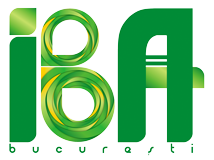Food packaging plays an essential role in food safety and consumer protection. Conventional plastic-based packaging provides only basic physical protection and, in many cases, contributes to the increase of plastic pollution. Statistics show that approximately one-third of packaged foods spoil in the supply chain, mainly due to traditional packaging.
Innovation in Packaging: Active, Smart, and Nanocomposite
To address these challenges, current research focuses on the development of active, smart, intelligent, and nanocomposite packaging. These modern solutions offer numerous advantages, including:
- extended shelf life,
- maintaining product quality,
- reducing food waste,
- additional protection against external factors.
Natural Polyphenols – A Valuable and Sustainable Resource
Fruits, vegetables, and tea are rich sources of natural polyphenols, bioactive compounds with antioxidant and antibacterial properties. A recent research trend highlights the use of polyphenols extracted from food waste for the development of sustainable packaging. This approach transforms food residues into a valuable resource, reducing environmental impact.
Benefits of Food-Waste Polyphenol Packaging
Packaging films and pads made from dietary and food-waste polyphenols show remarkable effects:
- antibacterial – reduce the growth of harmful microorganisms,
- antioxidant – maintain food freshness,
- anti-browning – slow down the oxidation of fruits and vegetables,
- health-friendly – provide extra safety for consumers.
Some of these packaging materials are edible, while others are biodegradable, making them real alternatives to traditional plastic.
Conclusion: The Future of Sustainable Food Packaging
Research on active, smart, and intelligent packaging based on natural and food-waste polyphenols paves the way for a more sustainable future. These solutions not only reduce food waste but also minimize plastic pollution, promoting a circular economy in the food industry.
Source FRONTIERS.

